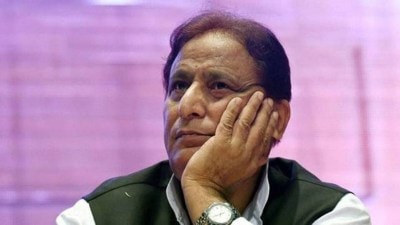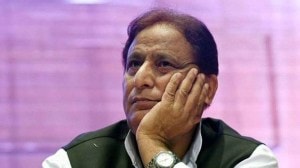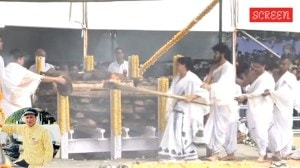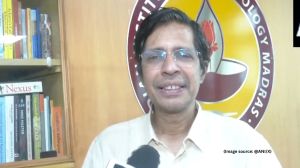To take Laloo on, it will help if Cong, Left join, admits Paswan
With the Bihar assembly elections less than six months away, Ram Vilas Paswan’s new theme song is “ekla chalo re” but he admi...

With the Bihar assembly elections less than six months away, Ram Vilas Paswan’s new theme song is “ekla chalo re” but he admits that in the mega battle against Laloo Prasad Yadav a little company would be more than welcome.
Paswan, whose Lok Janashakti Party was a key ally of Laloo Prasad Yadav in the Lok Sabha elections just three months ago, insists that his decision to fight the RJD does not constitute a volte face.
“The Lok Sabha elections and assembly elections are two entirely different things. My main aim in the national elections was to be part of a Sonia Gandhi-led secular alliance to defeat the BJP. In the assembly elections, the development of Bihar is the main issue and I want to test the independent strength of my own party,” Paswan says.
On being pressed further, Paswan concedes that he would like the Congress and the Left to join hands with him against Laloo. “If the Congress and Left come, I will be happy. But if they don’t, I am still determined to go it alone.”
The situation in Bihar, he says, is still very fluid. The state units of both the Left parties and the Congress are keen to break ties with Laloo. But he is aware that the central leadership may take a different view because of compulsions of running the UPA government and maintains that whatever he does in the state will have no bearing on the Centre. In other words, his anti-Laloo position in Bihar won’t come in the way of his ties with the Congress-led alliance in Delhi.
While the prospects of a LJP-Congress tie remain hazy, Paswan is clear about one thing—he will have no truck with the the BJP-JD(U) alliance. In fact, forget BJP, he will not ally with the JD(U) either, ‘‘even if the JD(U) breaks ties with the BJP.”
“Individual leaders and workers from JD(U) are welcome to join my party, but there is no question of my having an alliance with the party,” he says. The JD(U), thus, is in a different category than the Congress and Left who would be welcomed as allies.
Paswan says he has no personal quarrel with Laloo and will not run a negative campaign in Bihar. ‘‘I will only focus on positive issues— development of Bihar, secularism, social justice, and social harmony.”
The last three words are not abstractions. Secularism means an appeal to minorities, social justice an appeal to Dalits and backward castes and social harmony to upper castes.
Paswan’s decision to go it alone stems from the belief that Bihar is divided into pro-Laloo and anti-Laloo forces, but the anti-Laloo forces (that now include a significant section of Muslims, non-Yadav OBCs, and even a growing section of Yadavs) will never consolidate behind the BJP.
According to him, after losing power at the Centre, the BJP is no force at all in BIhar. The minorities are no longer in the grip of fear as they were under NDA rule. And upper castes in the state have realised that they can never defeat Laloo by backing the BJP—because the minorities vote en masse for Laloo when BJP is the main adversary.
Paswan’s main mission, therefore, is to transform the battle in Bihar ‘‘into a fight between two secular forces.’’
To defeat Laloo in his den might seem a tall order, but Paswan—who has been written off as a spent force many a time only to bounce back—is confident that he will give a good fight, even if victory proves elusive.
Photos



- 01
- 02
- 03
- 04
- 05




























